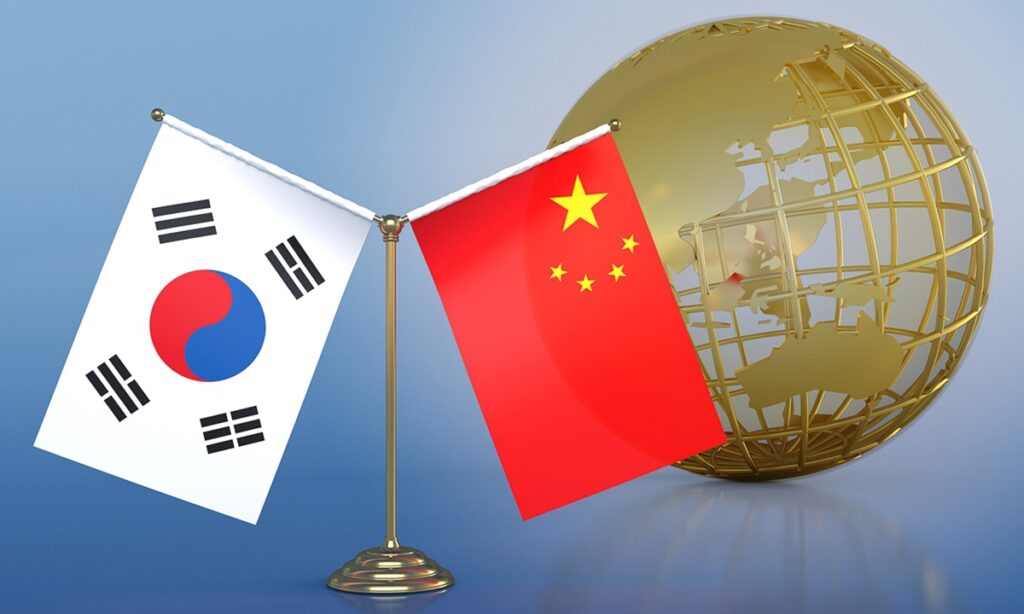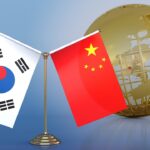The South Korean Embassy in China recently sent us a letter, lodging a so-called “formal protest” in response to several reports and opinion articles published by the Global Times concerning South Korean President Yoon Suk-yeol’s visit to the US. Such words that crossed boundaries and came with strong emotions should not come from a diplomatic institution. We cannot accept the rather brutal interference in our independent reporting, and we find it difficult to agree with the views and accusations against our newspaper in the “letter of protest.”
Because of the “rare” move of the embassy that publicized the “protest” through South Korean media, and because the event has been raging in South Korea, it is necessary for us to make a response publicly. It is inevitable that China and South Korea have divergences, but the question is how to resolve or manage them, rather than letting them get out of hand. It is with such a calm and rational attitude that the Global Times, as an official Chinese media outlet, hopes to achieve a frank and in-depth communication with the South Korean side.
We published two editorials titled “South Korean diplomacy’s ‘national dignity’ in tatters over Taiwan remarks” and “Yoon’s visit to the US verifies an evaluation” on April 23 and 28 respectively, which clearly expressed our position on the current China-South Korea relations and President Yoon’s controversial remarks regarding China. The subsequent development and Yoon’s China-related remarks during the second half of his US visit further confirmed our impression and judgment.
The harshest criticism toward Yoon government’s humiliating diplomacy with the US came from within South Korea, where many insightful people have expressed strong concern and deep reflection on this diplomatic tendency. If it were not for the “inappropriate, erroneous, and dangerous” remarks made by the South Korean side on issues related to China’s core interests, and the apparent negative trend in China-South Korea relations, we, including the Chinese people, would not have been interested in commenting. However, some of the recent public opinions and actions of the South Korean side in relation to China have caused resentment and alarm in Chinese society, and this is the culprit that has led to the “negative impressions” among the people of both sides.
Given the South Korean side is “extremely sensitive” to the voice from China, our editorials have tried to be as polite as possible. Nevertheless, it should be clear that the Northeast Asia is in a complex and delicate situation, and South Korea is at a “pivotal point,” which is a great test of its political wisdom and diplomatic skills. However, Seoul’s current performance makes it difficult for people to have confidence in it, which is out of step with South Korea’s ambition to be a “global pivotal state.”
In particular, since the current South Korean government came to power, it has catered to the actions of the US, Japan and other countries of undermining regional stability. It has also repeatedly made wrong remarks on major issues that concern China’s sovereignty and grossly interfered in China’s internal affairs, such as the Taiwan question. Now it is targeting a Chinese media. If South Korea’s diplomacy continues in this direction, the consequences will not only be the estrangement of relations between China and South Korea, or the loss of South Korea’s “national dignity” in front of Washington and Tokyo. Rather, it will stimulate, induce, and aggravate the imbalance and even collapse of the situation in Northeast Asia. It will be unbearable for South Korea.
Japanese Prime Minister Fumio Kishida paid a working visit to South Korea on May 7 and the two countries held a leaders’ summit. Not only do we have no objection to the good relationship between the two neighboring countries, but we are also happy to see it. But the premise is that it does not harm China’s interests. Take a look at the headline of a Bloomberg report: “Rare Japan-South Korea summit could help US’s push on China.” A question to the South Korean Embassy in China is, what will it make the Chinese people think? If the South Korean side has empathy, it should be able to understand the concerns and sentiments of the Chinese people, and realize that the recent words and actions of the South Korean side have harmed the mutual trust between China and South Korea, which requires the South Korean side to take practical measures to make up for it.
We agree with a sentence in the “letter of protest,” which is that responsible media should adhere to the principles of reporting, but this sentence should be said to those Korean conservative media that are full of anti-China remarks. South Korea always finds the wrong target. It should show dignity and independence to Washington, but it behaves like a snowflake to China, which is full of goodwill and sincerity to it. This newspaper pointed out in a previous editorial that China has shown real and even extra diplomatic respect to South Korea, and we hope South Korea can show some self-respect. Today we would like to reiterate this sentence.
Frankly speaking, we do have some doubts about Seoul’s diplomacy. We doubt the Seoul authorities really accurately understand and grasp the reality of international politics, and whether they really care about the healthy and mature development of China-South Korea relations. We hope that we have misunderstood the South Korean side. This requires more convincing proof and clarification from the South Korean side, rather than a simple “protest” that will obviously aggravate the “misunderstanding.” We also protest against such “protests.”
(Global Times)




